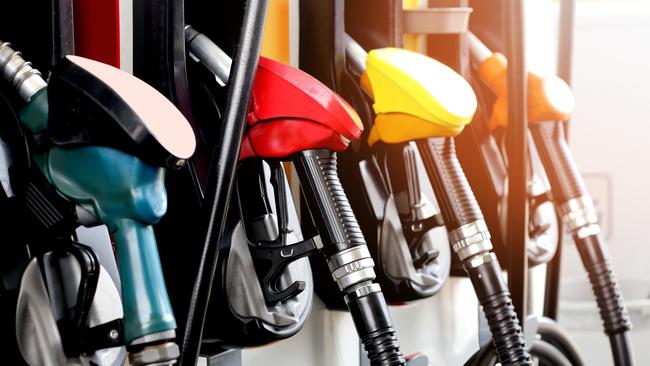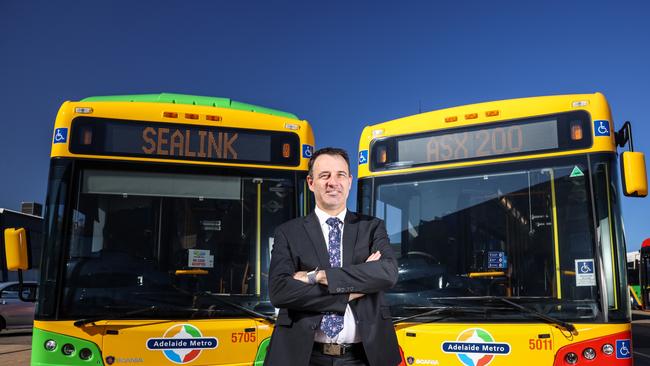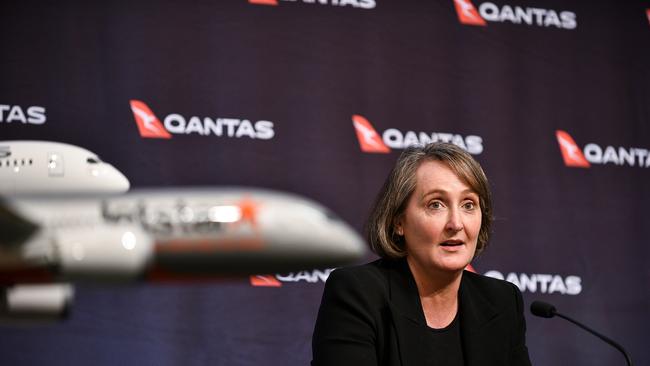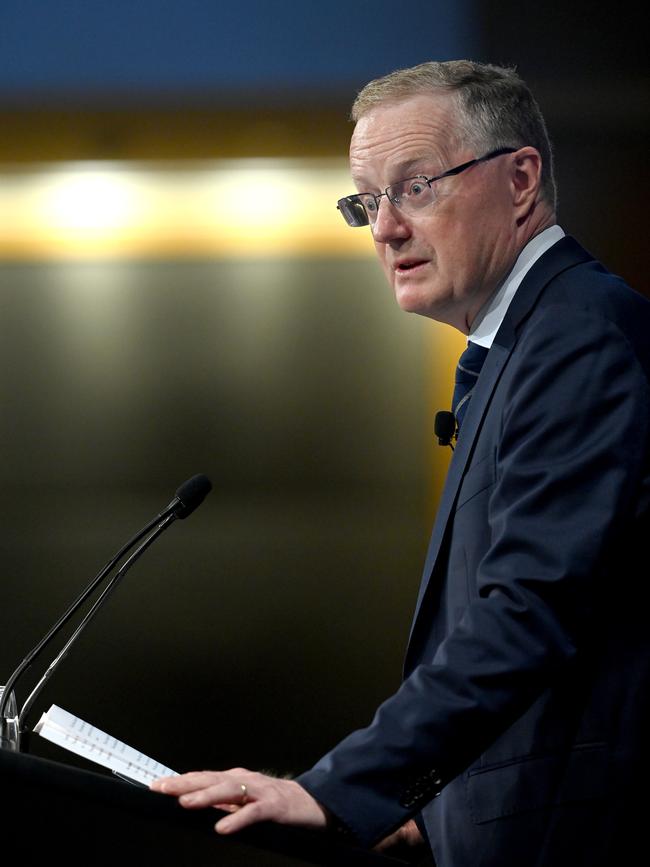Alarm bells ringing as rising costs set to fuel inflation
For many businesses it will simply be a matter of passing prices through. Ultimately it will be consumers who feel the pinch.

Business
Don't miss out on the headlines from Business. Followed categories will be added to My News.
Clint Feuerherdt oversees a business that runs more than 3000 buses across Australia and operates more than 100 ferries so he knows a thing or two about diesel.
Fuel is usually his top expense item after wages and in the past six months this has gone up 20 per cent to be now running at an annualised rate of $100m. This fuel bill is expected to climb even higher in coming months as global oil prices push to levels not seen since the lead-up to the global financial crisis. Already since February global oil prices are up 40 per cent.

For Feuerherdt, the chief executive of transport major Kelsian Group, his day-to-day fuel costs are hedged through his monthly contracts – which means his mostly government customers are now feeling the higher diesel costs directly. Kelsian operates part of Sydney’s bus network and also ferry contracts for Brisbane.
“That’s being passed through now, under the contracts. It gets passed through every single month,” he says. Kelsian’s commercial businesses including the Kangaroo Island Ferry service has fuel prices locked through hedges.
“If there is a sustained increase in fuel, then obviously that starts to flow through to fares going up on those on those commercial services,” Feuerherdt says.
Earlier Wednesday Reserve Bank governor Philip Lowe said the world was facing a “supply shock” given the war in Ukraine.

While Australia will escape the worst of the direct fallout as higher commodity prices boost exports and national income, in a speech in Sydney Dr Lowe restated his position that it was “plausible” that the cash rate will be increased later this year.
Qantas chief financial officer Vanessa Hudson says the carrier will look to pass on any sustained rise in fuel prices in the form of higher ticket prices. For now until the end of the financial year, the airline is 90 per cent hedged, which means it is protected from higher fuel costs in the short term.
“The way Qantas has historically managed higher fuel prices is to recover that through higher fares. What you need for that is strong underlying demand and also relatively stable and rational capacity – and right now we are seeing that,” Hudson told Bloomberg TV.
Surging prices of oil and other commodities including gas and metals such as nickel and copper and even wheat are raising alarm bells.
Businesses are grappling with how to manage rising prices and for many it will simply be a matter of passing prices through under existing contracts.
Ultimately it will be households that feel the pinch of higher fuel costs and other price rises in the form of soaring inflation. It will eat away at the nation’s Covid savings pile at a faster rate. This has big implications for the pace of growth in the economy as well as the cost of money with the Reserve Bank waiting for the right moment to hike rates from the ultra low 0.1 per cent.

Australia’s three-year bond yields continue to surge, pushing 1.67 per cent, the highest level in three years. This is the market’s way of tipping where the official cash rate will be in three years, suggesting a steep hike to the official cash rate is coming.
Dr Lowe on Wednesday pointed out the issue the central bank is grappling with is whether this is a “temporary increase in the level of prices or is it a period of ongoing higher rate in the way that prices are increasing”.
But for now the answer to that is still not known.
“Given the history of low inflation in Australia we can afford to look through a period of temporirly high inflation because of higher oil prices and commodity prices shocks if we think they will eventually wash through the figures,” Dr Lowe says.
The world economy is inching toward a dangerous position. As Russian bans are worked through, the extreme run up in all commodities prices could be enough to deliver a shock to growth, undermining both consumer and business confidence along the way.

AMP Capital senior economist Diana Mousina this week brought forward her expectations of a RBA rate rise to June. While central banks tend to look through one-off spikes in inflation, the broader rise in commodity prices is happening at a time of already heightened inflation.
“Overall, I think this is a worse shock than we had in the 1970s. Because you are seeing prices for a huge amount of commodities increase,” she says.
“It’s not just for oil but when you are seeing prices rise for gas and metals such as nickel or a large number of agricultural exports like wheat and grains – these are all huge contributors to the cost of goods overall”.
Some analysts, including JPMorgan have tipped Brent crude could push $US185 if Russian supply continues to face disruption. At these levels some projects could risk becoming unavailable with the cost line blowing out.
Compounding tight supplies leading up to the Russian crisis has been the massive shift in capital spending in recent years towards renewable energy and hydrogen spending. This great transition toward renewables is a force that is unlikely to be reversed.
“For 160-plus years the model of global growth has been based on the ample supply of cheap fuels, generating power, fuelling transportation, providing the bases of industrial and agricultural processes. Now much of the world has committed to undo all of that in 30 years,” Citi’s global economics team says.
However Citi has tipped some relief on the way with Iran oil entering the global market and the prospect of additional Saudi Arabian capacity also coming on-stream.
For Feuerherdt the surge in prices comes with a silver lining. It will bring forward spending on areas such as electrification. Significantly, he sees this as a turning point for hydrogen fuel cell technology.
“There’s a natural barrier to the amount of heavy vehicles that we can electrify based on the infrastructure that we can put in place to charge the electric buses,” he says.
“We always struggle with getting the cost of hydrogen to be equivalent to the cost of diesel. And what this price rise will do is it will start making some of those technologies more ‘like for like’ and more attractive for government clients to experiment with putting hydrogen fuel cell buses out on the road.”
Such a move, which is likely to be repeated around the world, will deliver momentum for change.
“The more demand that we have for that type of technology, the cheaper the technology gets. So it really is a potential catalytic moment where hydrogen becomes more economically viable as a fuel,” Feuerherdt says.



